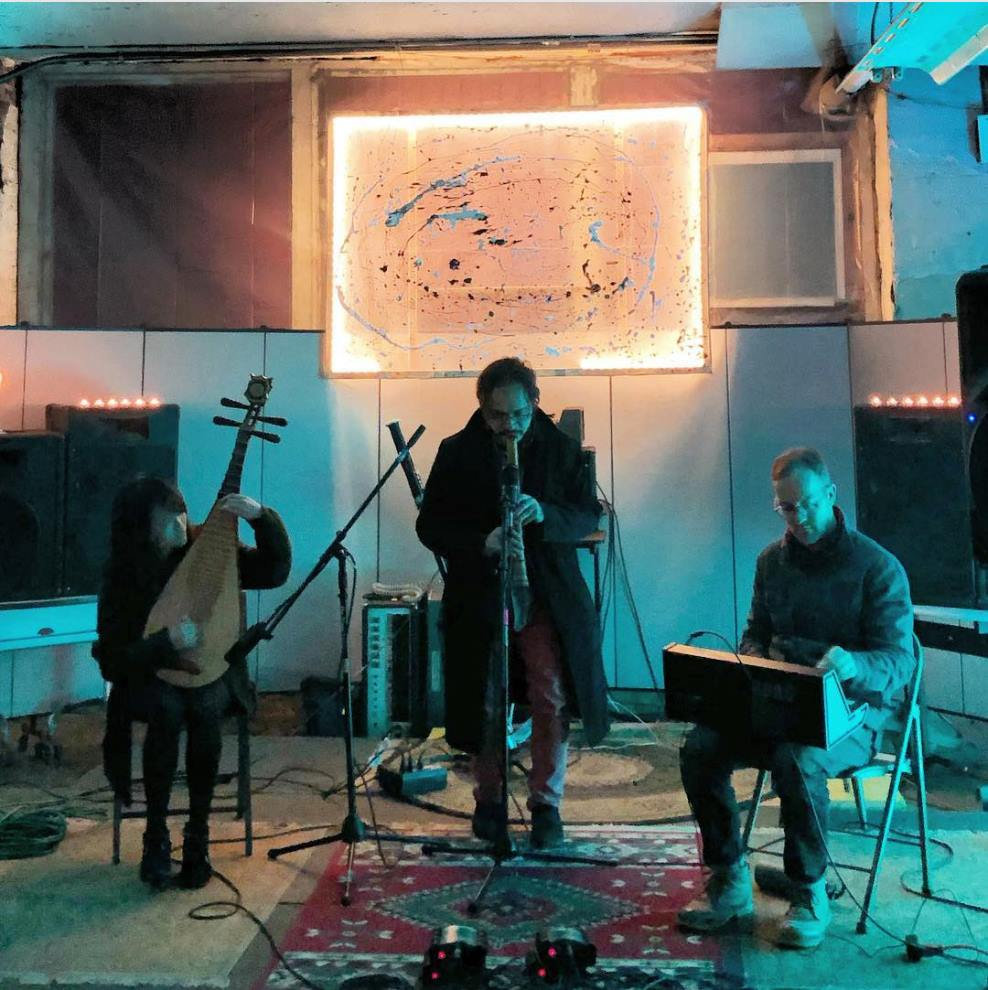|
Photo courtesy of Devon Tipp
Brutality has always dwelt underneath the work of Devon Osamu Tipp. The composer-performer’s works, such as “Blood on the Pavement 1984,” and “Music For Cannibals,” evoke a certain harshness that doesn’t often rear its head in the current wave of contemporary classical music. This same aggressive energy serves as a springboard for Tipp, who has propelled himself to new heights through the study of Japanese musical traditions and by emerging as an improviser and performer on the shakuhachi. “As a composer, I guess I'm now like 10-12 years into it,” Tipp said. “I realized there was a certain point where I had stopped performing more or less all together. I felt like there was a disconnect in my music and so I started reaching out to friends of mine.” “What really changed things was when I started studying shakuhachi through playing traditional Japanese music, through getting back to a Stage where I felt I could perform and make it work." Tipp continued. "But when I felt really comfortable wearing those shoes, that's when I started experimenting more with things like improvising, these sort of different kinds of nuances of timbre, transformations of sound, it took a long time and has been a long transitional period.” “I was surprised to realize about a year or two ago how much I actually enjoyed performing, how much I enjoyed being in front of an audience and performing , whether it was ensemble stuff or solo stuff or chamber stuff, it doesn't matter. I really missed that experience of getting out into the field and getting your hands dirty.” This drive recently culminated in a collaboration between Tipp and several composers on his new album, Shadows, Hymns, and Offerings: New Music For The Shakuhachi. The album focuses on works for electronics and Tipp’s solo performance on the Japanese woodwind, which delves into rich textures and harmonic concepts brought to life with extended techniques and bending timbres into otherworldly forms. Tipp’s multitude of experiences as a musician helped him fully realize this project. “I've spent a lot of time in the past few years just thinking about like ‘you have your teaching hat, you have your performing hat, and you have your composer hat,’” Tipp said. “How do these different performative aspects communicate with each other for better or worse?” “Some of the pieces that I written for shakuhachi recently are meant to be performed with extended techniques that may or may not necessarily be thought of in the same way in traditional Japanese music. It's like trying to identify as many different things going on there as possible.” Much of the same philosophy inflects Tipp’s composition in the same way it integrates into his performance practice. “I was really invested in trying to sort of get to the core of - if you will - this idea of verticality of sound,” Tipp said. “…you sort of have your standard Western concert music and this idea of, say like a Mozart symphony or Beethoven symphony and as late as maybe Bartok - it’s very concerned with a linear passage of time. [It] doesn't really exist in the same way in traditional Japanese music.” The vertical way of thinking has shaped a variety of pieces, including one of his most recent creations, “Cheat Sadness, Enjoy Suffering,” which also incorporated influence from the Butoh school of Japanese dance theater. “Up until recently, I was doing a lot of these long and slow pieces,” Tipp said. “It’s one of those things where the concept sounds great, but the execution is very challenging. It came to a point where I realized ‘I think I'll put it aside’ and instead, I started just looking backwards.” “I was doing some academic research on the post-world War II dance phenomenon called Butoh,” Tipp continued. “It’s a very intense form of dance that a lot of people sort of say erroneously is a result of the dropping of the two bombs on Japan, but it's nowhere near as simple as that.” “All the dances have different kinds of notation and they use a… notation where there are images, there is poetry, and various different things telling you how to conduct yourself in a dance. I'm not a dancer and I'm not nearly as aware of the tensions of my body as someone who does this work regularly.The gestures are so subtle, because [the dancers are] thinking ‘if I'm not careful, [everything] will collapse.’” Whether Tipp is re-shaping Western art music or inflecting the current sonic landscape with new timbres from his shakuhachi, more collaborations and projects loom on the horizon. According to Tipp, a guiding principle lies at the heart of his current work. “One of the interesting things that happens is when… you start trying to figure out what it is that you can offer to people, whether it's as a composer, as a performer or just as a human being at trying to making it work.” You can hear more of Devon Osamu Tipp’s music on his website and soundcloud. Listen to his latest release below.
0 Comments
Leave a Reply. |
AuthorErich is a musician and writer living between Montreal and New York whose work appears on Best Life, Eat This, Not That!, MSN, and more and has represented artists for years as a PR rep. He likes weird music. If you want to find his music, it's over here. Archives
August 2020
Categories |

